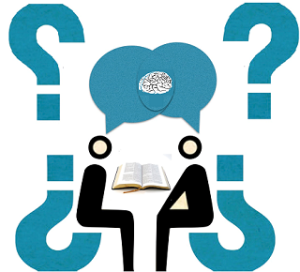
There is spirit of truth
The problem of an idealistic spiritualism, which can be confused with the dualismo of body and soul, is in fact a unique and exclusive construction of modernity, in classical antiquity where idea (the eidos) and substance are in relation, idealism separates subject Of the object, that is, the true, is not “substance”, but rather: “subject”, “thought” and spirit.
of body and soul, is in fact a unique and exclusive construction of modernity, in classical antiquity where idea (the eidos) and substance are in relation, idealism separates subject Of the object, that is, the true, is not “substance”, but rather: “subject”, “thought” and spirit.
Hermeneutic truth, that of historical consciousness, we have already stated that it is not Dilthey’s romanticism but the hermeneutic of Heidegger’s facticity and “of life” as you call that of Gadamer, goes beyond the realistic concept that this idealist “in itself” of Hegel Will become not merely an interpretation, but a relation within the hermeneutic circle where fusion of horizons and new relations is always possible.
The fact that we speak of spirit, for example, in law is commonly used the “spirit of the law,” in this case as the sense to which it points, but as our object is hermeneutics and within it the truth, we refer to what can be Called both to consciousness and truth.
The notions of spirit and soul also often overlap, in the sense that they do not nullify the meaning of hermeneutics, but rather complement it, for example, in the etymological origin of the Latin spiritus, in the sense of “blowing” or “breath” , and here is a dialogue.
We have already done some posts talking about ontological truth, that is, it exists as a Being and not only in the logical sense as it was explored by positivism and by a false scientific spirit, and in this case spirit means a set of which validate (they are truth criteria) to some hypothesis, hitherto explored only by reason and experience.
Then this spirit of truth is opposed to the spirit of deception, not in Manichaean logic, good versus evil, but the absence of good where evil prevails, lying narratives incapable of true dialogue, though often intending to have this Name, are nothing more than proselytism, repetition of argument and interpretation in a dogmatic way, even if not religious and certainly very present in fundamentalist discurses.
The dialogue that starts from the historical facts, from what is the personal and collective experience of many, as Paul Ricoeur says “I was there”, even if subject to misinterpretations can not but have in the experience of the facts, the spirit of truth And of lived experience and not just reported or interpreted.
Because part of the ontological phenomenology, of the thing in itself and not of speculation or ideologism, every human experience experienced can not be overlooked, on pain of letting the spirit of truth die, they are not a set of logical facts, but of facts that, while being illogical Like war, reveal the spirit of truth behind the facts, but human history has an origin and an eschatology.
This origin and eschatology that Teilhard Chardin explores to affirm the existence of a sphere of the Spirit, a Noosphere.









